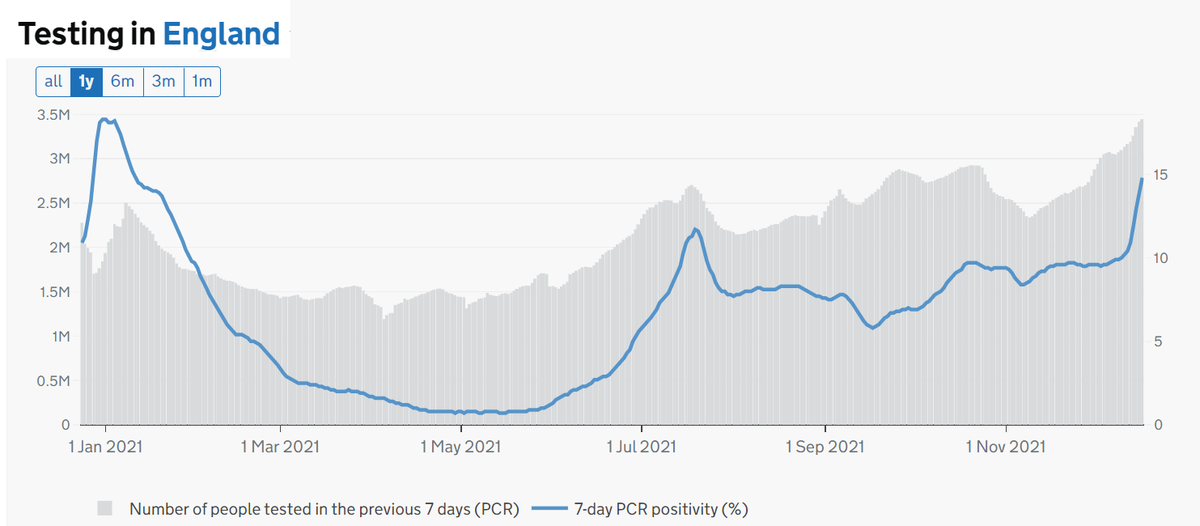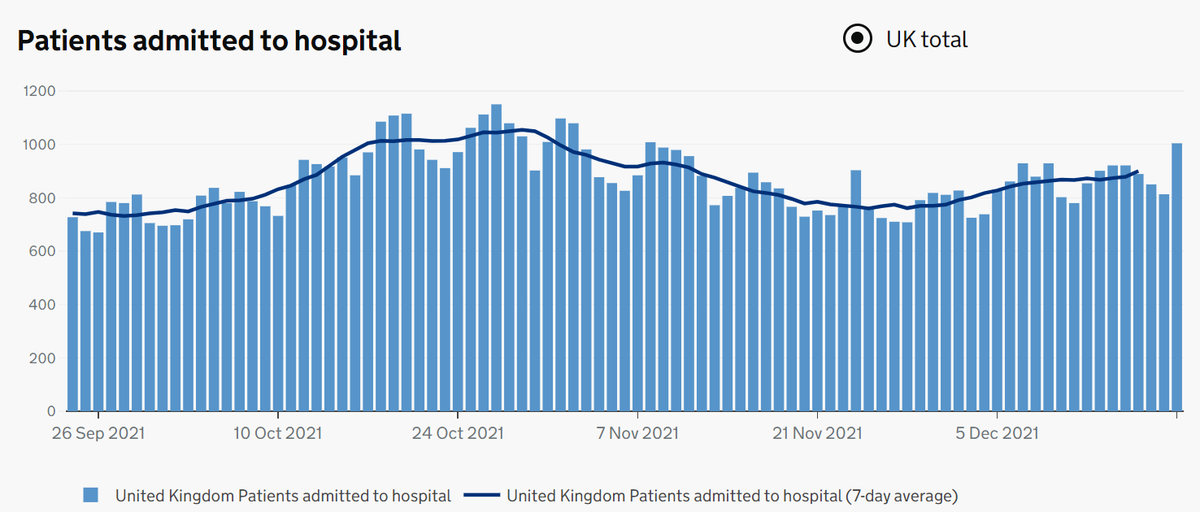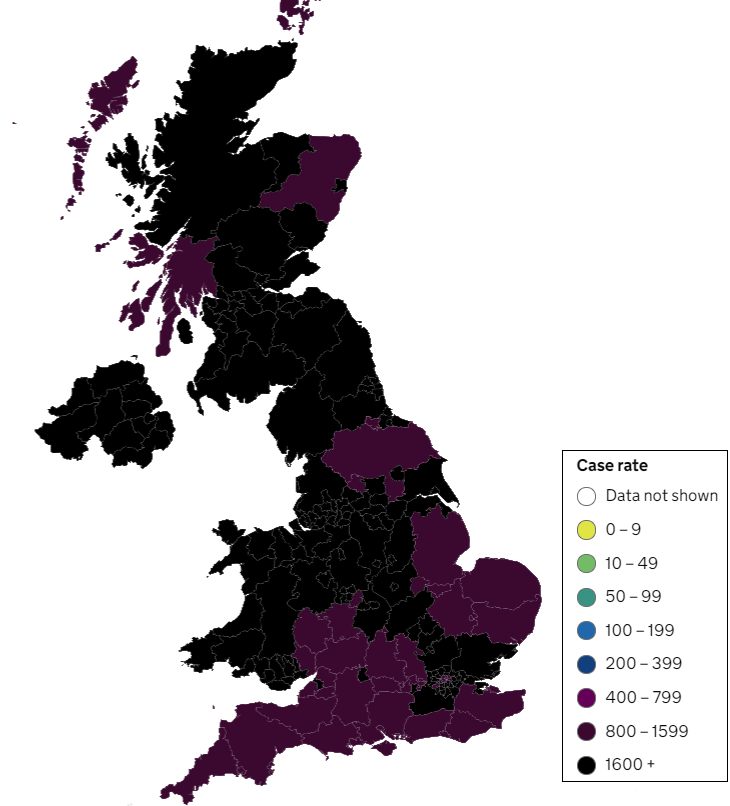COVID sitrep for Christmas Eve: The huge wave of COVID-19 infections, driven by the new omicron variant, is spreading across the country. Hospital admissions are now rising in London but the good news is we think things won’t be as bad as last winter. 1/12 bbc.co.uk/news/uk-597587…
The wave of infections with SARS CoV-2 is simply huge, passing 100,000 ‘cases’ two days in a row and way in excess of the previous record peak of 81,000 in January 2021. Yesterday 119,000 people tested positive 2/12 

Before anyone suggests it, this is NOT simply because we are doing more tests. Firstly, the proportion of tests done which are positive has increased too (blue line in graph). Secondly, people get tested for a reason - symptoms or a covid contact – it’s not random behaviour. 3/12 

The omicron wave hit London first. Hospital admissions have increased three-fold since the start of December. These are patients are coming into hospital with covid disease.
Good news is we now expect a worst case peak of half the number of admissions we saw in January 21. 4/12
Good news is we now expect a worst case peak of half the number of admissions we saw in January 21. 4/12

Another bit of good news is that covid admissions to intensive care in London have not really started to rise. A little early to expect this but maybe just maybe fewer covid patients in this wave are developing life-threatening critical illness... 5/12 

...so an early clue that may fit with research out this week suggesting covid due to the omicron variant may be less severe. BUT remember that huge number of infections so we shouldn’t get carried away. The main impact on NHS hospitals is yet to come. 6/12
bbc.co.uk/news/health-59…
bbc.co.uk/news/health-59…
The main increase in hospital admissions in London is expected between Christmas and New Year with a peak in the first half of January. The rest of the UK can expect a similar pattern a week or so later. So across the UK, hospital admissions have yet to rise. 7/12 

Quick reminder: When do a PCR test for a COVID patient, we only get a positive or negative. The genotyping tests which tell us which variant take longer, so we don’t know in real time whether we are treating omicron or delta, and cannot tell if they behave differently. 8/12
Also on the plus side, we now understand covid really well. We have lots of effective treatments. NHS escalation plans are a tried and tested routine. Staff are well drilled, patient care more efficient. We have good supplies of drugs, PPE and ventilators. 9/12
The biggest reasons to be positive are the huge number of people who have got themselves vaccinated (nine out of ten people) and the care people are taking to keep everyone safe. @ONS data suggest really good compliance with public health guidance. 10/12 

But we cannot relax yet. The NHS pressure may not be as bad as last winter, but it’s still REALLY bad. We have lots of staff sickness and we're struggling to deliver ‘routine’ work such as surgery and cancer care. GP surgeries are busy vaccinating us alongside usual work. 11/12
Covid data wont be available over Christmas so don’t expect any major news for a few days. The NHS situation will be difficult but not as bad as last winter. Our individual actions are what keep COVID under control, so please keep up your amazing efforts. #StaySafe 💙 12/12 

• • •
Missing some Tweet in this thread? You can try to
force a refresh


















